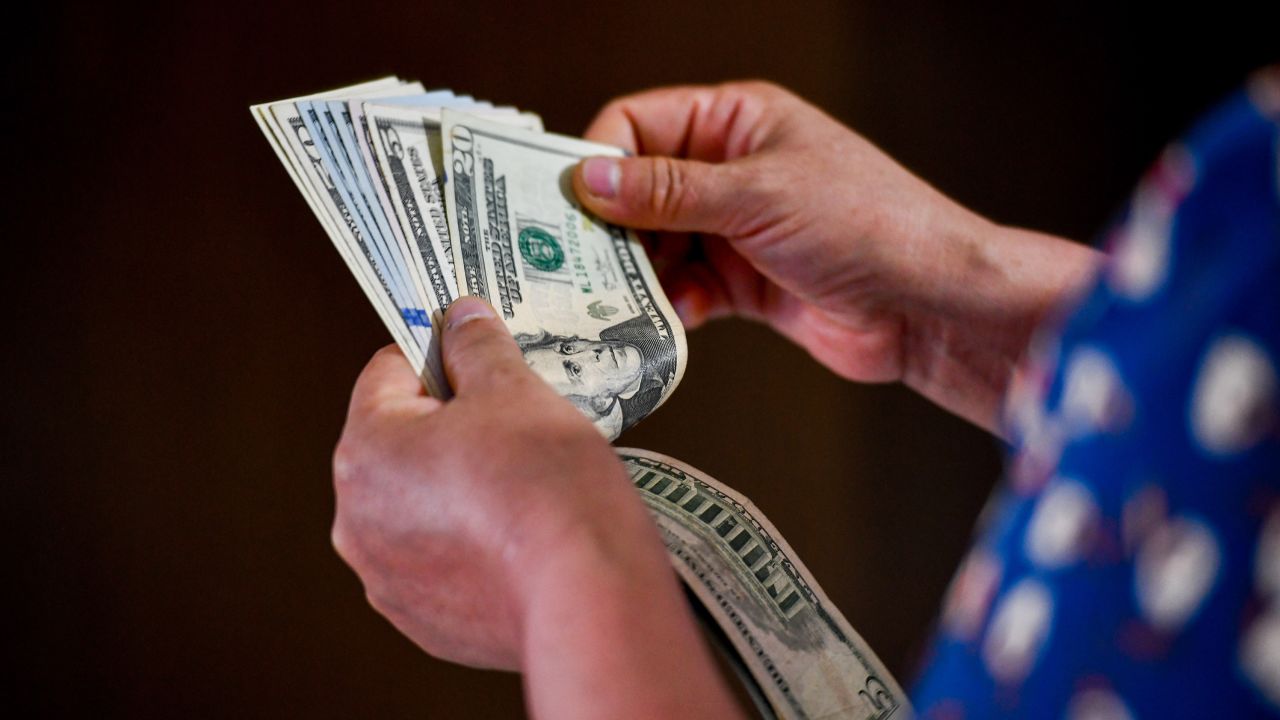LONDON (CNN) — The US dollar is enjoying its longest rise in nearly nine years.
On Friday, the currency headed for the eighth straight week of gains against a group of major currencies, its best streak since the winter of 2014-15. It has risen 5% since mid-July.
This rise comes after months of volatility fueled by fears that the dollar may lose its status as the world’s reserve currency. Speculation about the possibility of eliminating the dollar in global trade increased again last month after the expansion – led by China – of the BRICS group of countries to include major oil producers, such as Saudi Arabia.
“Rumors about a falling US dollar remain greatly exaggerated,” James Athey, chief investment officer at Aberdeen Asset Management, told CNN.
The dollar index, which has now reached its highest level in six months, has been supported by a series of positive US economic data in recent weeks, which has reinforced expectations that the Federal Reserve will keep interest rates high for a longer period of time. Higher interest rates tend to increase the value of a country’s currency by attracting more foreign capital as investors expect higher profits.
On the other hand, the economies of China and Europe face headwinds.
“The US economy continues to show remarkable strength, while Chinese and European affairs, in particular, appear to be descending into a much more stagnant place,” Athey added.
Resilient American economy
Unemployment in the United States is near its lowest level in 50 years. Hiring remains strong, with 32 consecutive months of growth in August. Wages, adjusted for inflation, are rising.
Many economists have revised their growth forecasts in response to all this good news.
A “soft landing” appears increasingly likely to occur, that is, when the central bank can reduce inflation without pushing the economy into recession.
“The US economy continues to surprise to the upside,” Carsten Brzeski, global head of macroeconomic analysis at ING, told CNN. “It seems more resilient than scary.”
This would give American consumers the confidence to continue spending, and give the US Federal Reserve a greater incentive to keep interest rates at their highest levels in 22 years in an attempt to calm inflation.
The Federal Reserve “has fewer reasons to cut interest rates significantly next year,” Brzeski said, adding that Europe’s relatively weak economic performance does not leave “much room for monetary policy.” [Banco Central Europeo] Continue to raise the key interest rate.
Ross Mold, chief investment officer at AJ Bell, told CNN that the difference between the two interest rates, and the possibility of them remaining unchanged rather than tightening, is “a key factor in the dollar’s recovery.”
Weak economies elsewhere
Europe and China are in a delicate economic situation.
The euro has lost 4.4% of its value and has been trading at $1.07 since mid-July. The Chinese yuan fell by 2.6% in that period and reached its lowest level against the dollar in 16 years.
Athanasios Vamfakidis, head of G10 currency strategy at Bank of America Global Research, told CNN that while the US could hit a “soft landing,” “the euro zone looks closer to a stagflation scenario.” , if not zero, economic growth.
The official European statistics agency revised down its GDP growth estimates for the 20 countries that use the euro, from 0.3% to 0.1%, for the second quarter of this year.
German industrial production fell in July for the third month in a row, according to official data, adding to the host of problems facing Europe’s largest economy.
A weak euro is likely to push up import prices, which in turn will fuel inflation. Adding to the upward pressure are crude oil prices, which have risen in recent weeks as Saudi Arabia and Russia extend supply cuts.
The Chinese economy is also facing a wave of enormous challenges: falling consumer prices, a worsening real estate crisis, and declining exports.
The People’s Bank of China has cut interest rates on mortgages and its loans to banks in recent months to help boost demand for credit.
“China’s weakness has affected not only the yuan, but also other major currencies in the region and its major trading partners, including the euro,” Alex Cohen, currency strategist at Bank of America Global Research, told CNN.





/cloudfront-eu-central-1.images.arcpublishing.com/diarioas/NOHGIKVIOBH64GOVMC5ZIQQNVU.jpg)